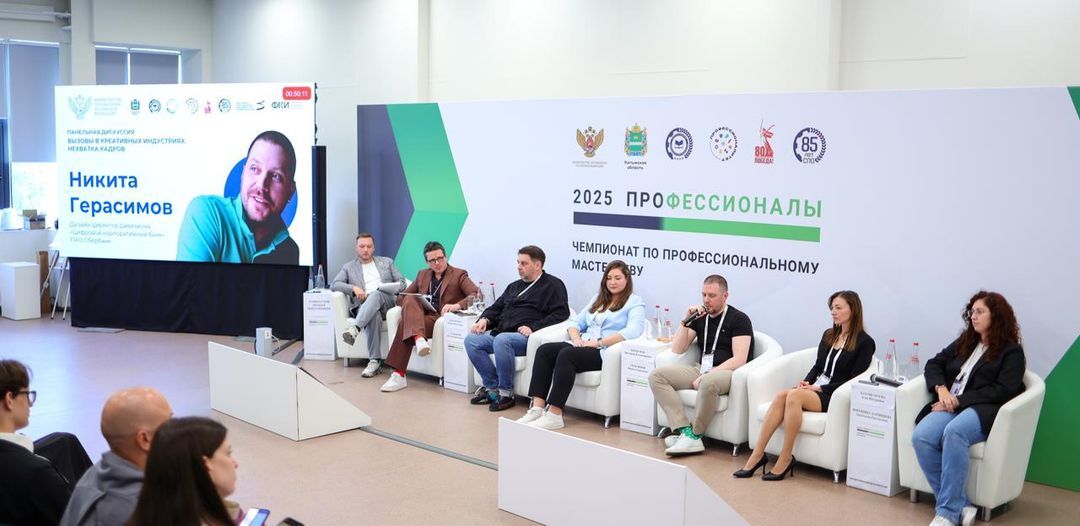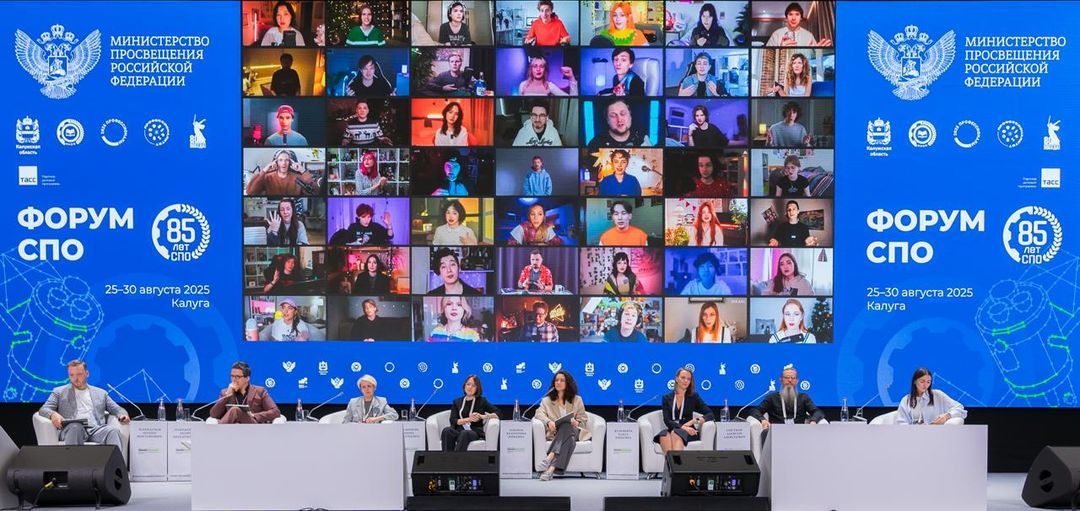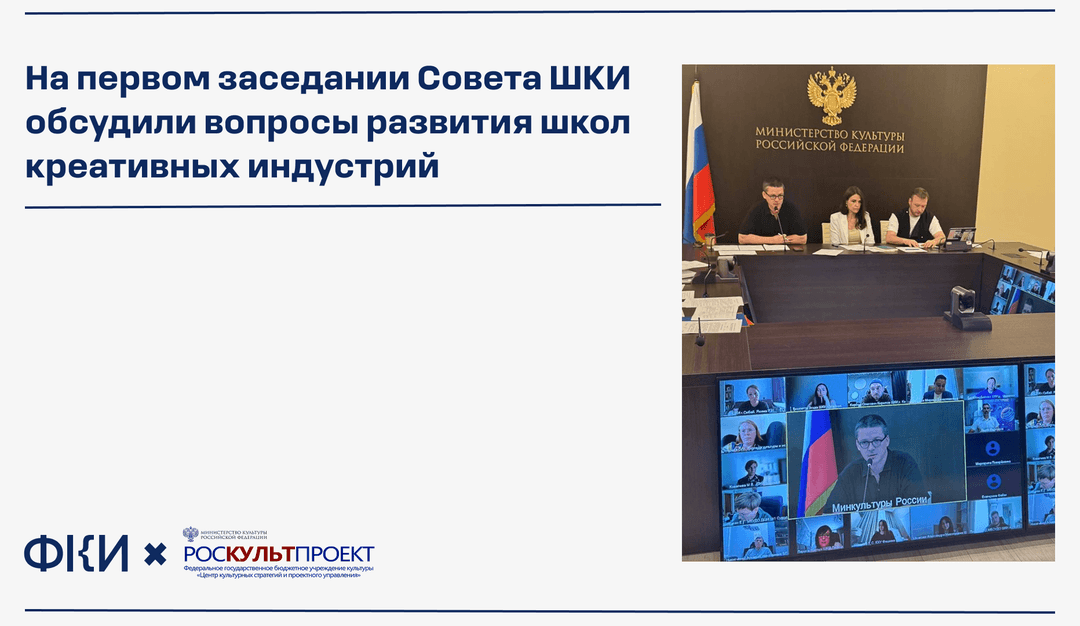

SPIEF-2021: The Federation of Creative Industries says it is necessary to enter the race of creative solutions

SPIEF-2021 has come to an end. This year the Federation of Creative Industries participated in three panel discussions at SPIEF-2021 and organized a business breakfast together with Forbes magazine and the IPChain Association.
An important event at the St. Petersburg International Economic Forum on June 5 was the last panel session "Exporting ideas, people or products? Is there a place for Russia in the International Creative Race and is it Possible to Turn the Nation's Intellectual Potential into a Liquid Asset for the Global Economy", where the Federation of Creative Industries summed up the entire creative-economic agenda of SPIEF 2021.
The experts discussed the issues of the creative economy, touched upon the models of market organization where at the moment there are no methods to evaluate and measure the sector and no regulatory mechanims in the field of intellectual property rights. The speakers agreed that in recent years the international economic competition has shifted towards creative and innovative products, digital content production and export, and intellectual property management. The race for creative solutions is already on and it is important for Russia to join it as soon as possible. Thus, SPIEF-2021 provided an opportunity to publicize a new economic agenda and encourage market participants to take part in the development of the creative industries sector.
The session was addressed by Aleksander Auzan, Dean of the Faculty of Economics at Lomonosov Moscow State University, Chairman of the Federation of Creative Industries; Baurzhan Bektemirov, Chief Economist at Astana International Financial Center; Mikhail Kozhevnikov, President of the Enlightenment Group; Alena Kremer, founder and managing partner of DPG Russia Creative Agency, Vice President of AKAR; Ilya Kretov, General Director of eBay in Global Emerging Markets; Igor Kremenov, Chairman of the Russian Union of Industrialists and Entrepreneurs (RSPP) Committee on Intellectual Property. The discussion was moderated by Igor Namakonov, General Director of the Federation of Creative Industries.
Andrey Krichevskiy, Chairman of the Russian Union of Industrialists and Entrepreneurs (RSPP) Committee on Intellectual Property and Creative Industries and President of the IPChain Association, shared his vision of the creative industries market: "The system of state orders can support creators, but it is unlikely that this tool will be effective for the creative industries. At the same time the budget of our country has means which can be directed to stimulate the development of a new economy. This can be done, inter alia, through state funds that will carry out venture or grant financing. This approach is used in other countries as well, even those where there is an excess of private investment capital. It is also necessary for the state to provide security guarantees, especially for the start-up period of creative enterprises - for example, tax immunities and benefits - and to set up an effective infrastructure to protect intellectual property, which is a major asset for us."
Alena Kremer, the founder and managing partner of the creative agency DPG Russia and Vice President of AKAR, touched upon other problems in the sphere of creative industries: "The systemic problem of the industry that hinders its development is the fact that most creative projects die at the idea creation stage. This is due to a lack of business competence among entrepreneurs and a lack of necessary financial resources. Banks are not ready to credit creators with intellectual rights, because they are not able to make qualitative estimation of ideas and potential projects. The solution of this problem could be the creation of professional expert communities and building the interaction of "experts - business - government". Communities of experts consisting of subject experts, like-minded people and practitioners with a high level of qualification and experience in generating creative products should become a place where one can acquire all the necessary knowledge and skills to develop business competencies. A separate function of such communities should be the certification of a project, confirming its value and prospects for obtaining subsequent financing".
Mikhail Kozhevnikov emphasized the necessity to develop entrepreneurial thinking and knowledge of creative industries among schoolchildren: "We already need to show schoolchildren the opportunities given by the creative economy. To tell them about creative industries, to make them understand that entering them is not as difficult as it may seem at first sight. This will help future generations to expand opportunities for professional and personal fulfillment. “Enlightenment” solves this problem: together with VEB.RF and Sberbank, we have entered a state program to build schools by concession. These will be schools of a new type, with a modern educational environment and opportunities for students and teachers to develop on a daily basis. Today's school standards include a basic content core that requires a maximum of 40% of all of the time spent in schools. The remaining hours can be spent on the development of entrepreneurial thinking and immersion in the field of creative industries.
Pascal Cools, speaking live from Belgium, shared the European experience of the economic sector: "The creative sector is very important and we benefit from it every day. In Belgium, 6.6% of the population works in the creative industries, which is more than the chemical or automotive sectors of the market. 12% of the self-employed in Flanders work in creative industries, a trend that is not only observed in Belgium, but in the whole of Europe. In England, creative industries generate tens of millions of pounds every hour. The EU also recognizes the creative sector because the industries influence the development of other areas of the economy. This is how cross-industry interaction arises among different industries."
Dmitry Mikhailov added: "Russia at the Expo 2020 in Dubai will shift its agenda from technology to people, to their creative and intellectual potential. Without this source, technology cannot exist. This year Russia will be presented as a world intellectual and creative center which exports ideas in the scientific and creative sectors. At the EXPO-2020 world exhibition we will be expected to present a cultural program which will demonstrate the modern development of the creative industries. The Roskulttsentr, represented by Marina Abramova, director of the institution, is already helping us to realize our plans.
Ilya Kretov, General Director of eBay for Global Emerging Markets, said: "There are about 250 million searches on eBay a day, and 187 million active buyers on the site. I see export as one of the ways for creative professions to develop. Over the last year it has made a quantum leap: the market has grown by about 42%, and today more than 41,000 Russian sellers export using eBay. However, many sellers are still afraid to enter new markets. We are fighting these fears by making exports more accessible and easier. Our dream is that exporting is as familiar and routine as receiving a pension at the post office was for our grandmothers.
"Russia's legal system is not conducive to the development of a creative economy in its current incarnation. For the development of an innovative environment it is worth paying attention to foreign experience. Kazakhstan, which changed the constitution and created the International Financial Center "Astana", is clearly demonstrating itself in this regard. Borrowed aspects of English law allow the Kazakhs to create tools for the creative industry and protect property rights, something we are not yet able to do at home, " concluded Aleksander Auzan.
Furthermore, within the framework of St. Petersburg International Economic Forum 2021, a business breakfast was held with Forbes and the IPChain Association called "Creative Economy: Dialogue of a New Cross-Industrial Reality", where the speakers agreed that we now live in a global world where the creative industries have no borders. The attraction of the market is constantly growing and therefore the state needs to create all the conditions for its development, and this requires self-organization of the creative industries and people interested in reforming the field.








